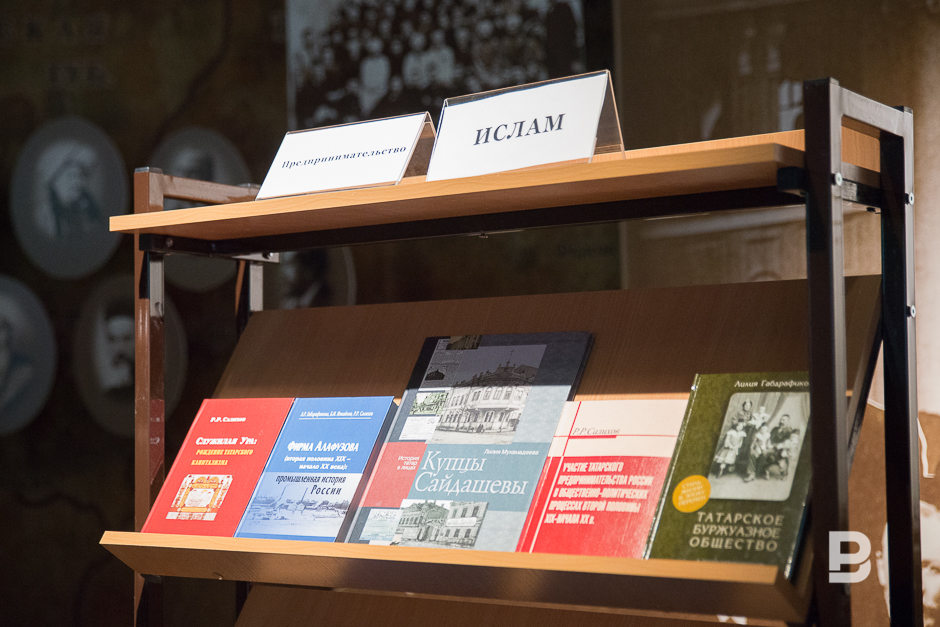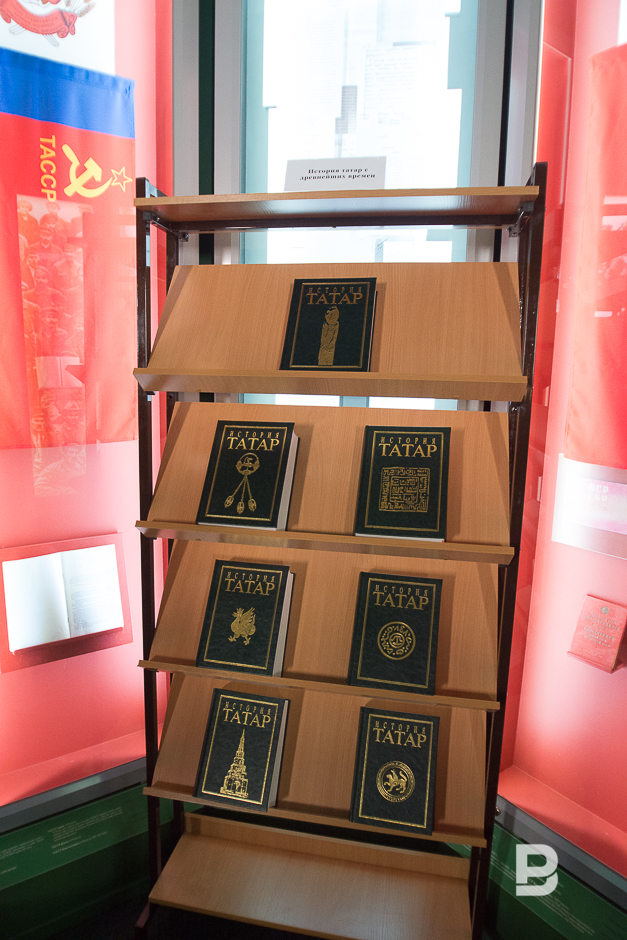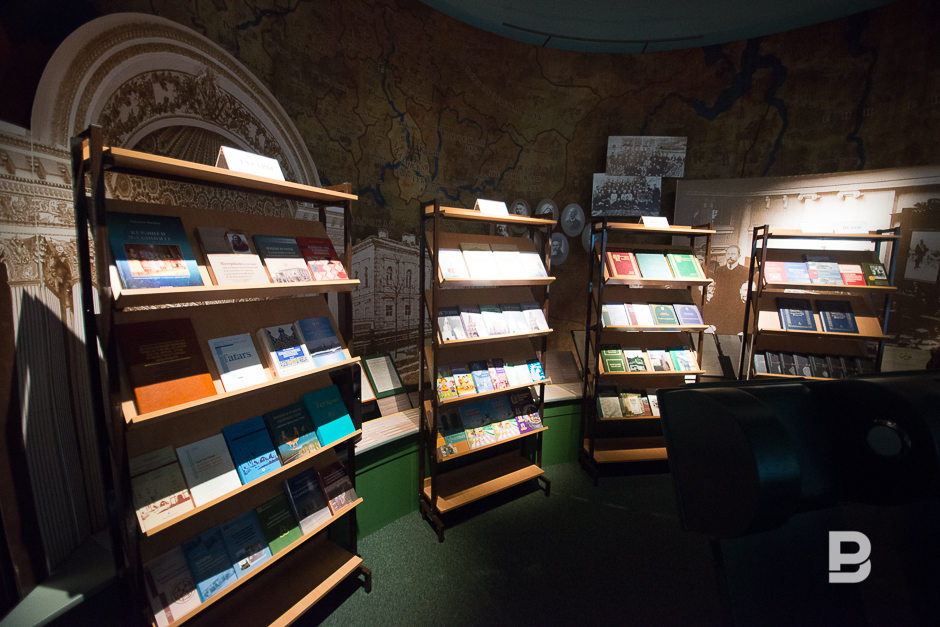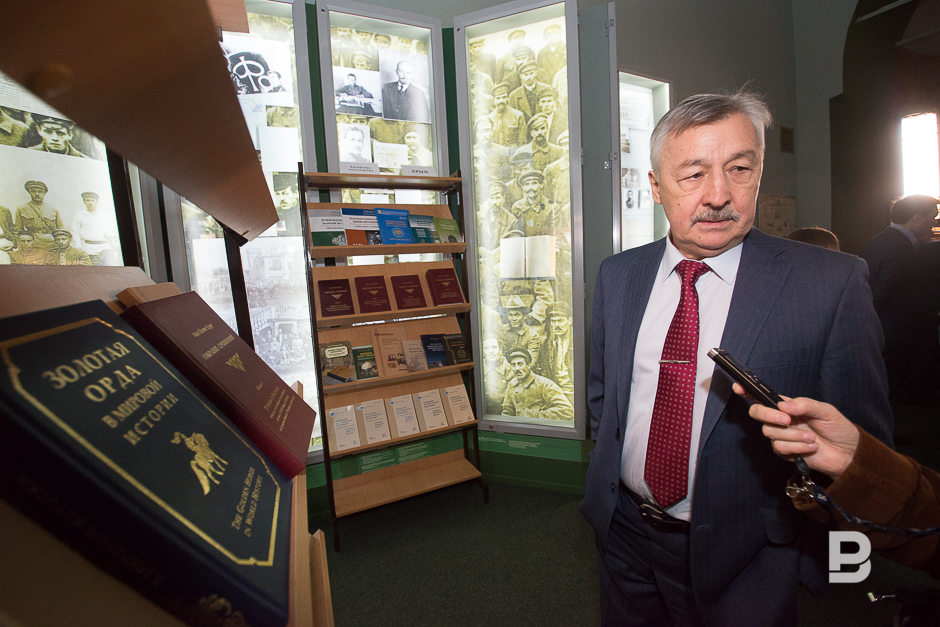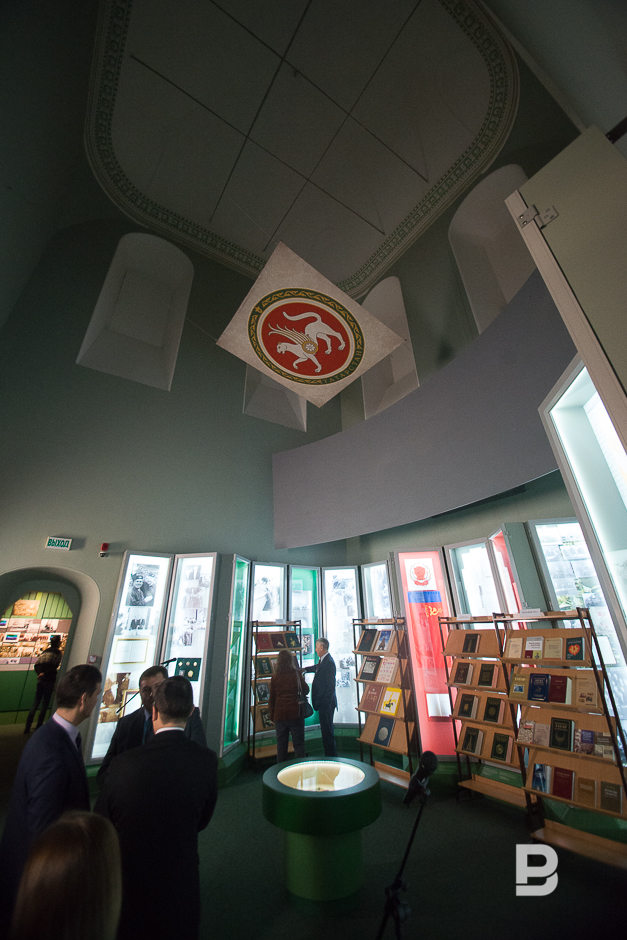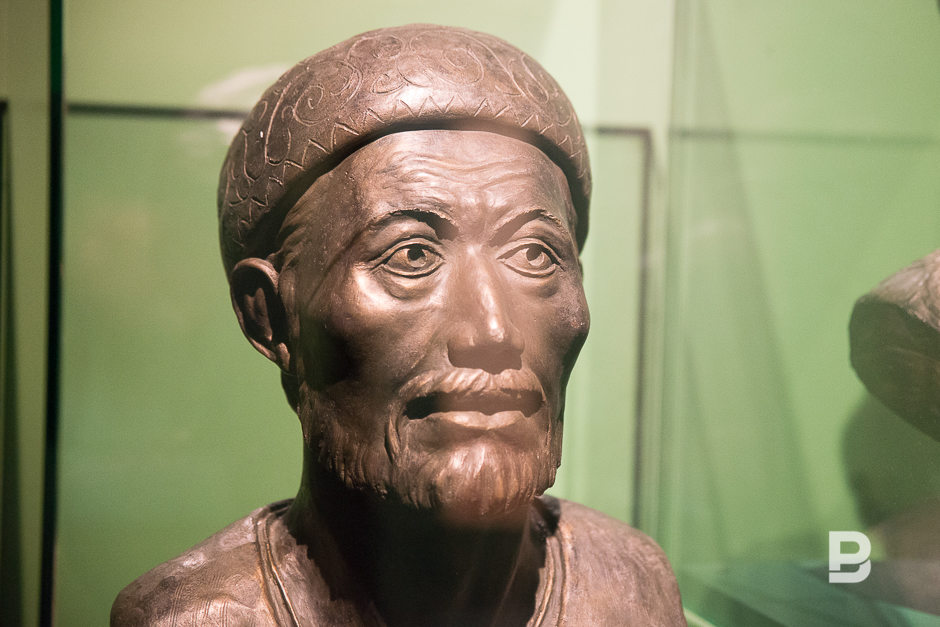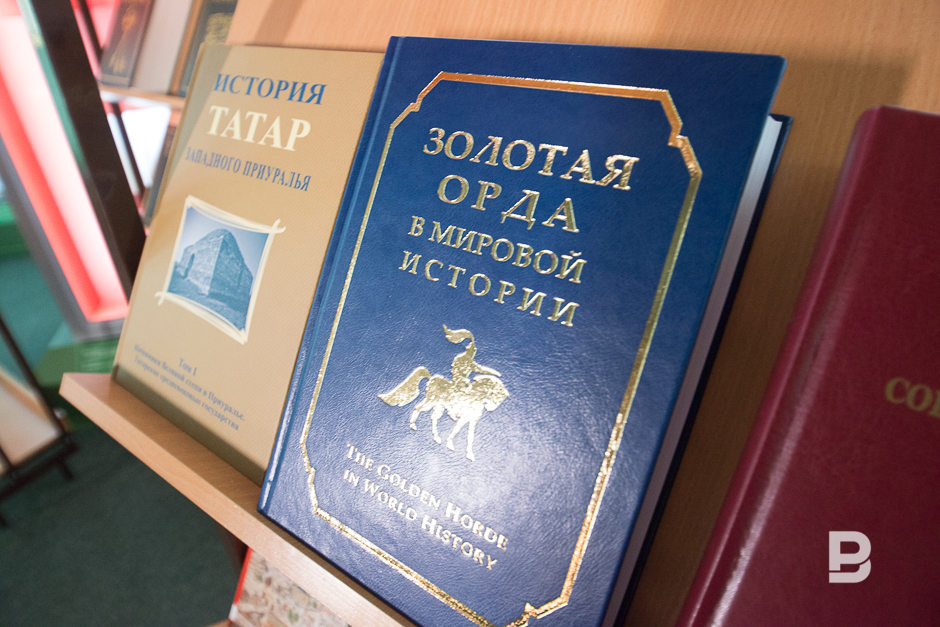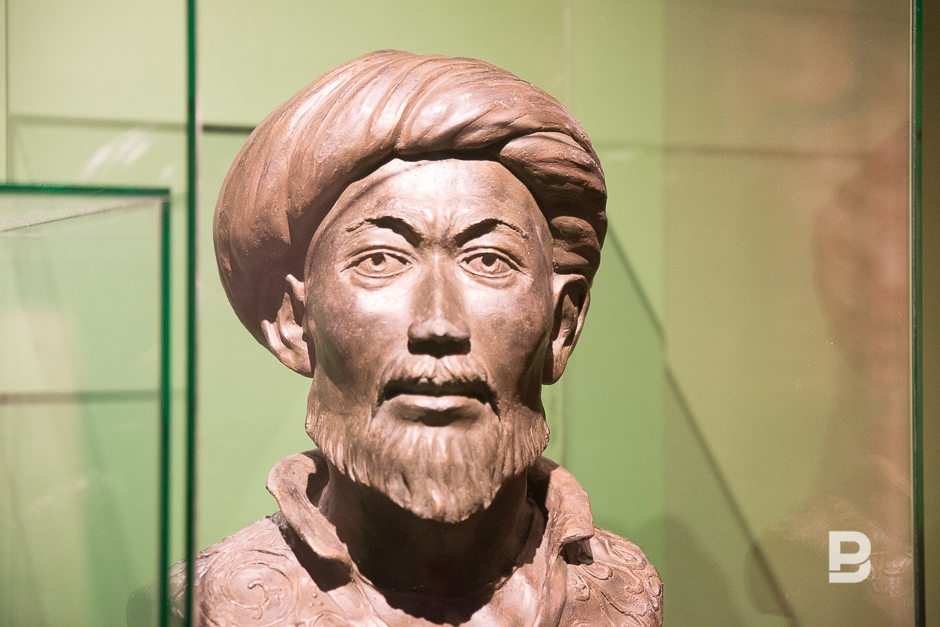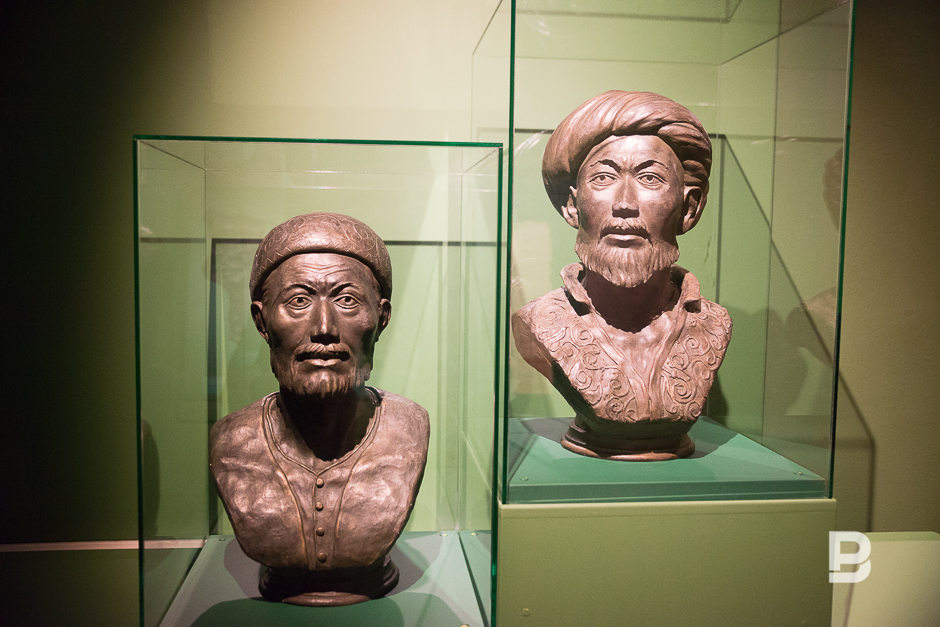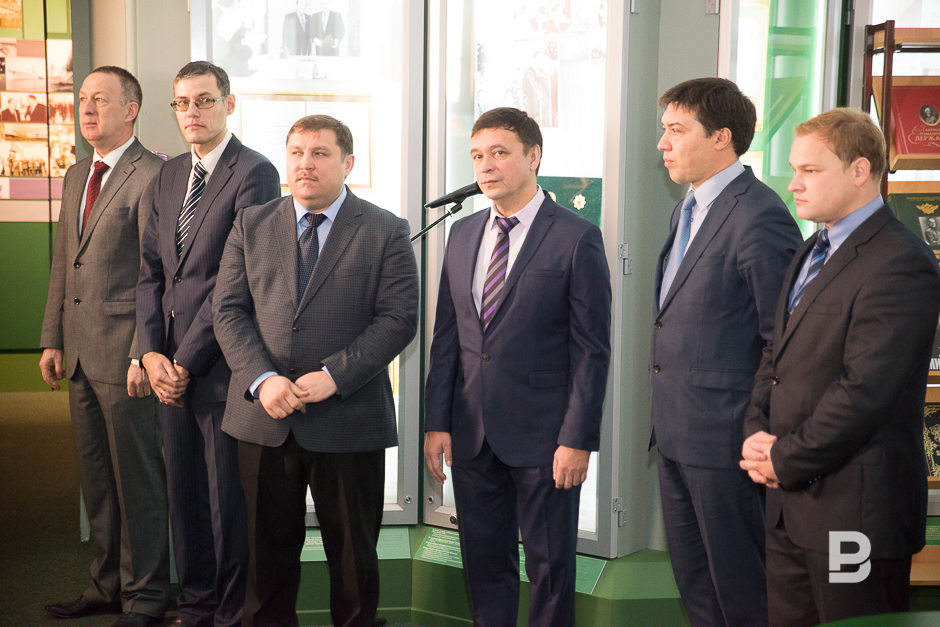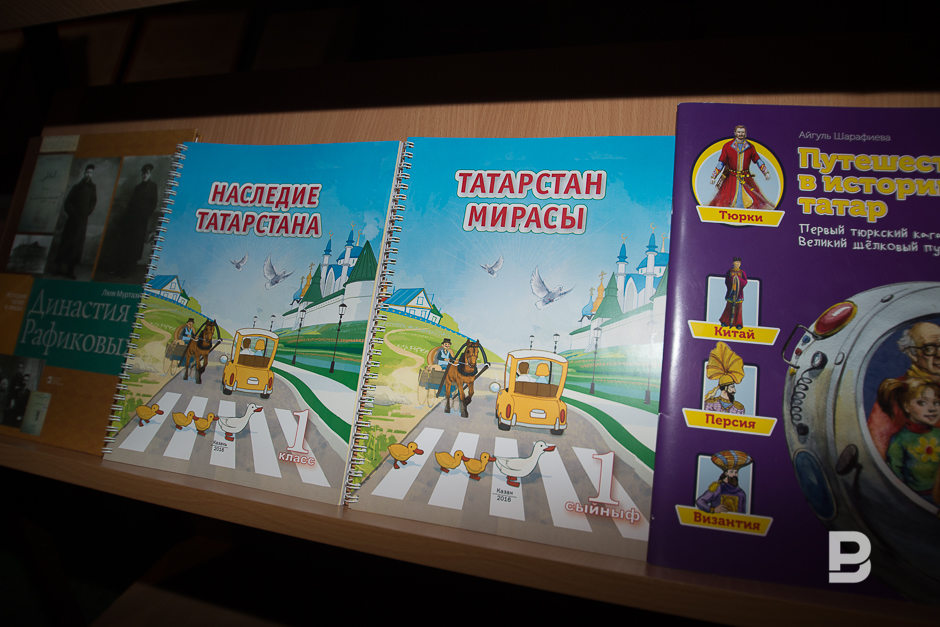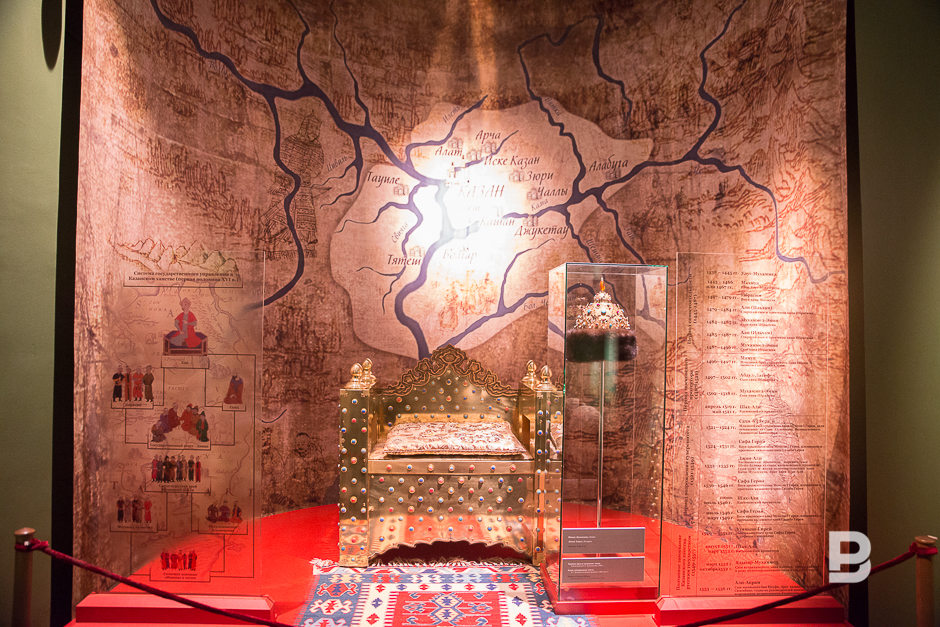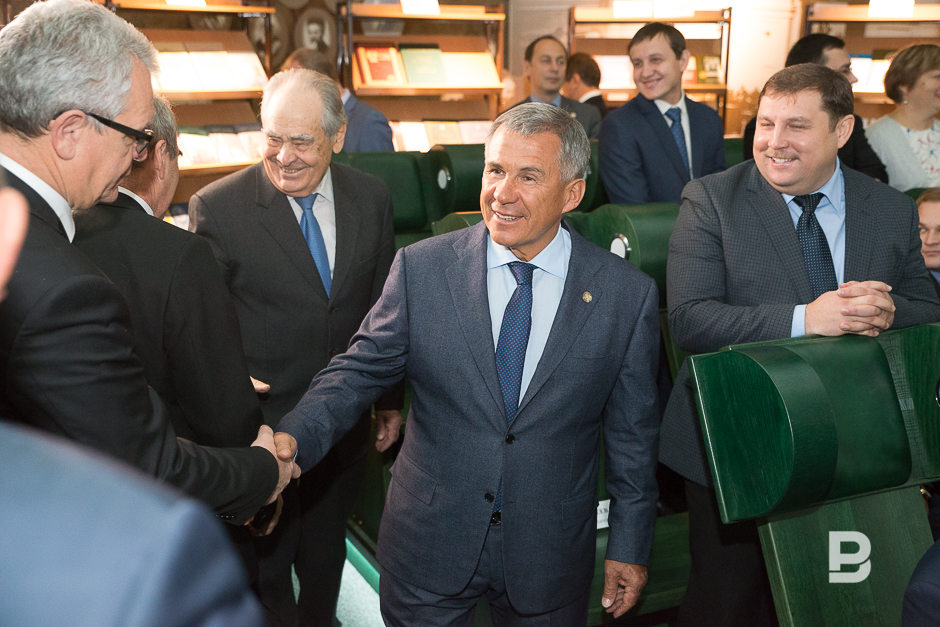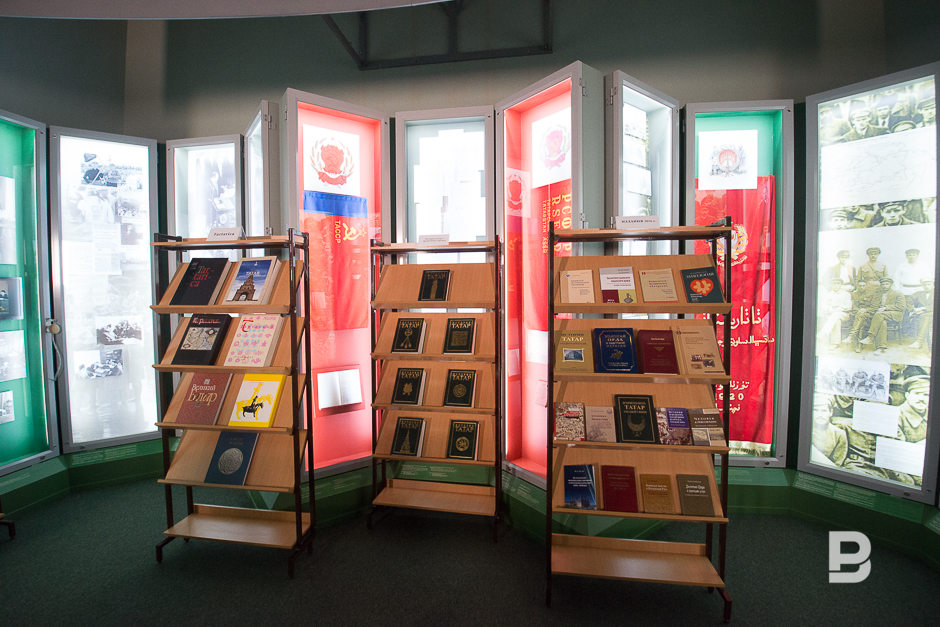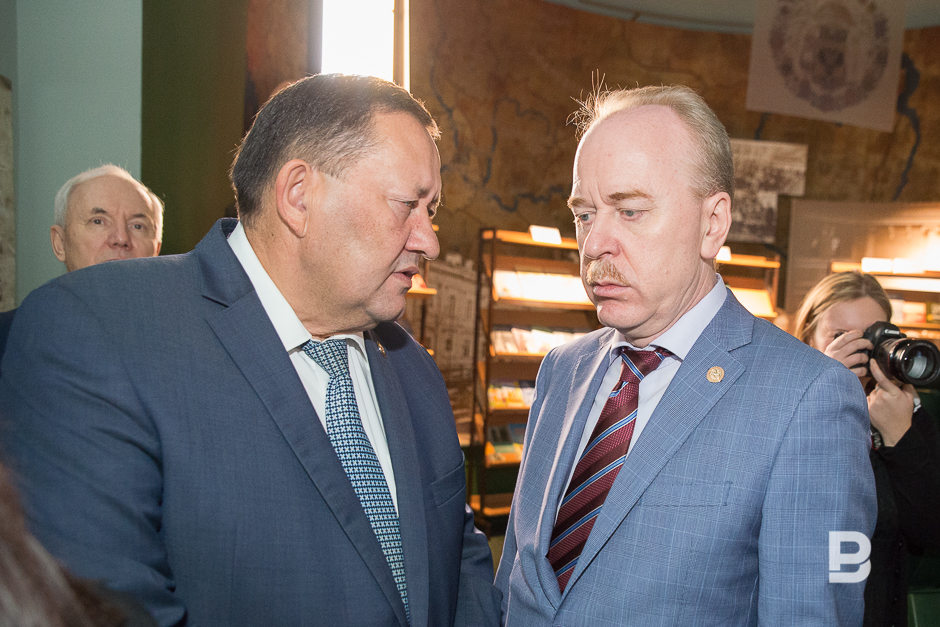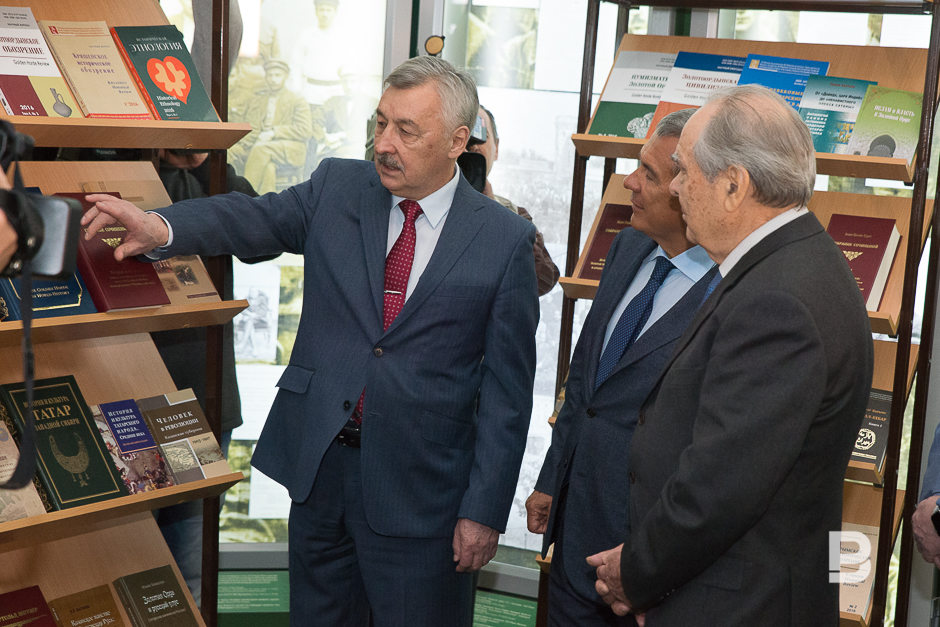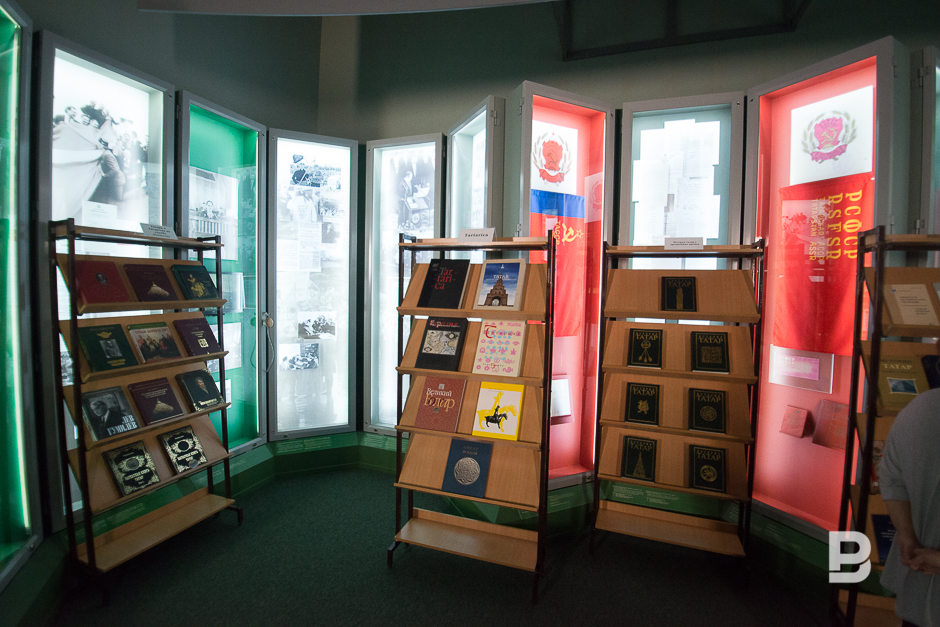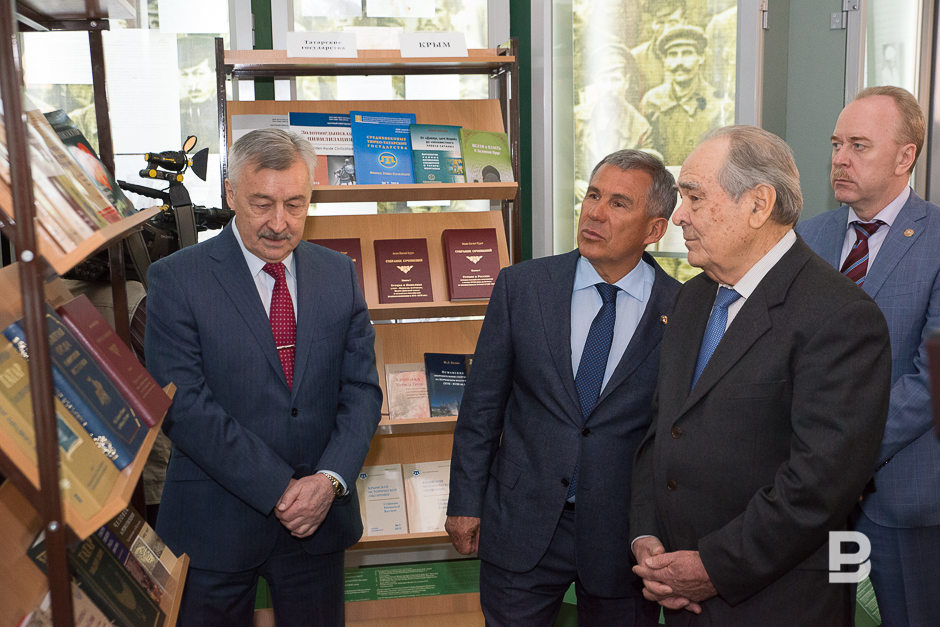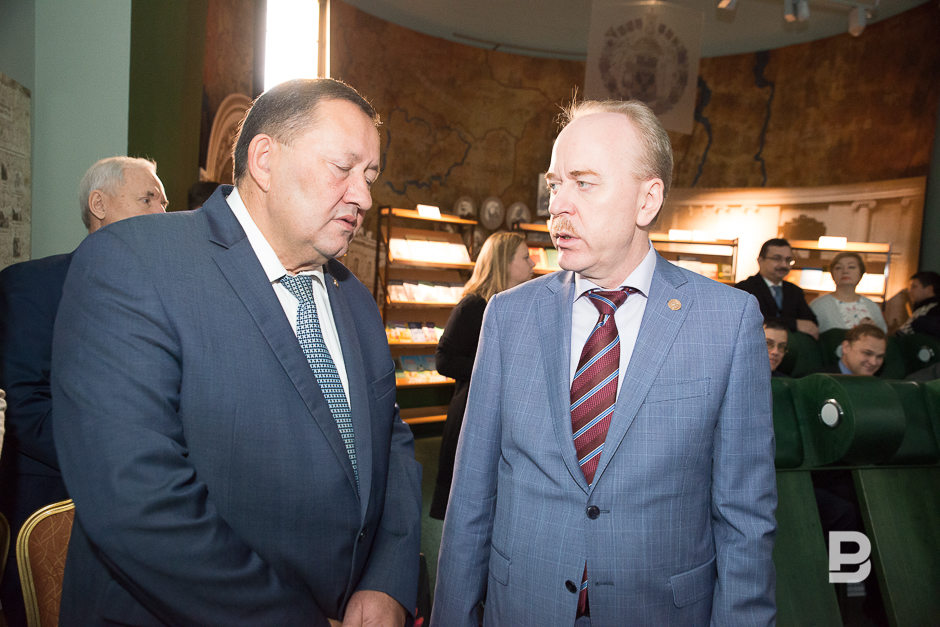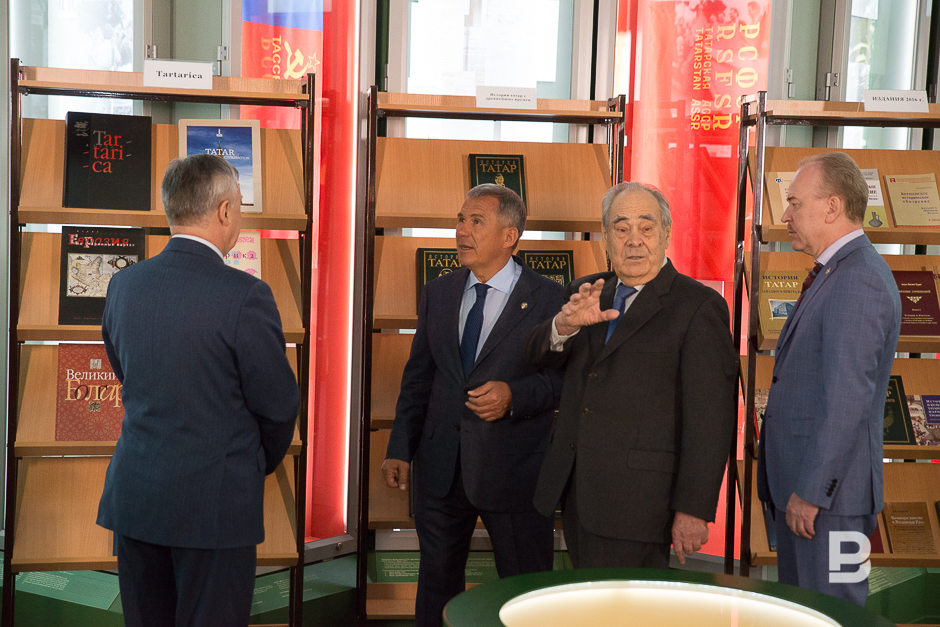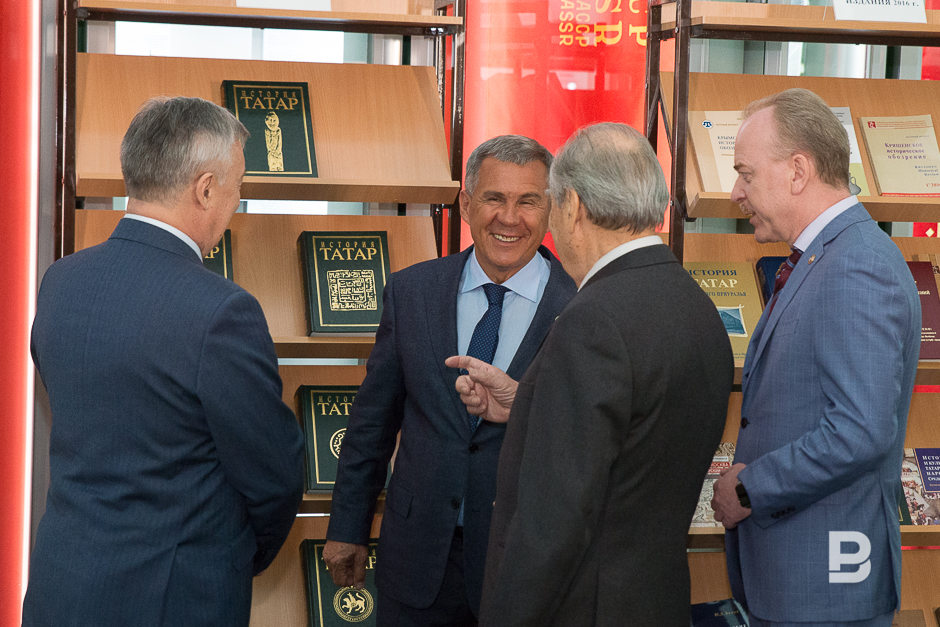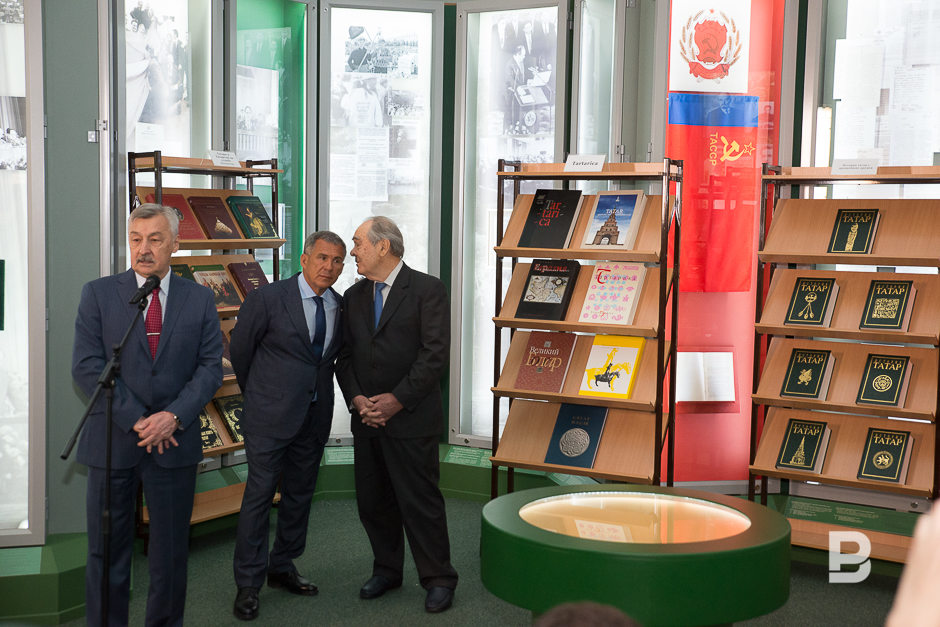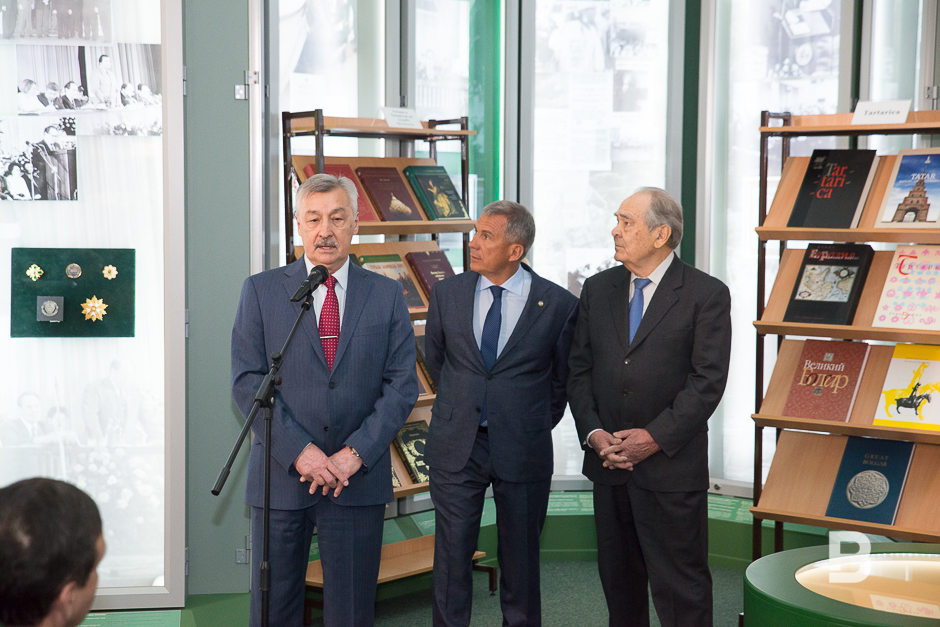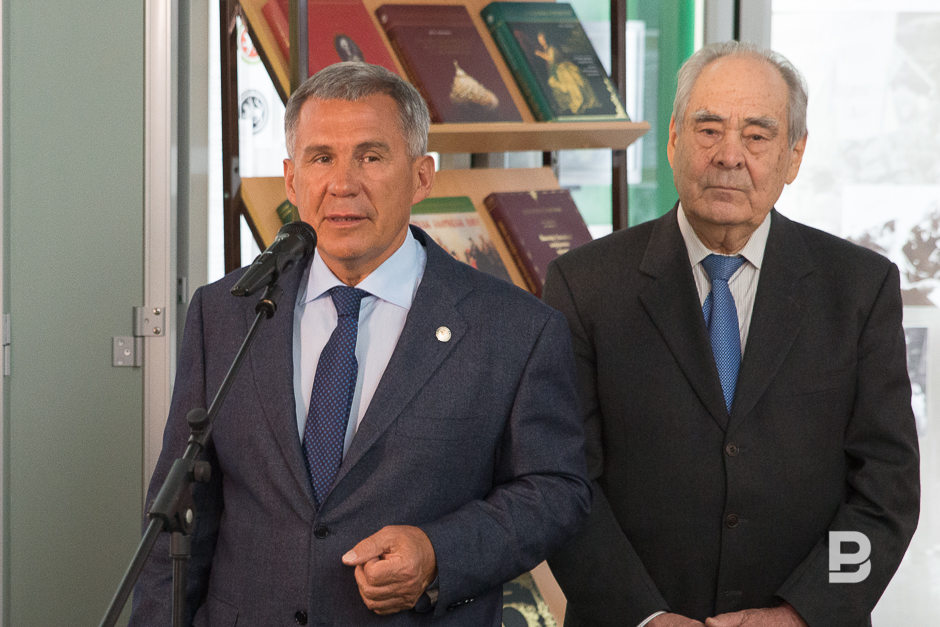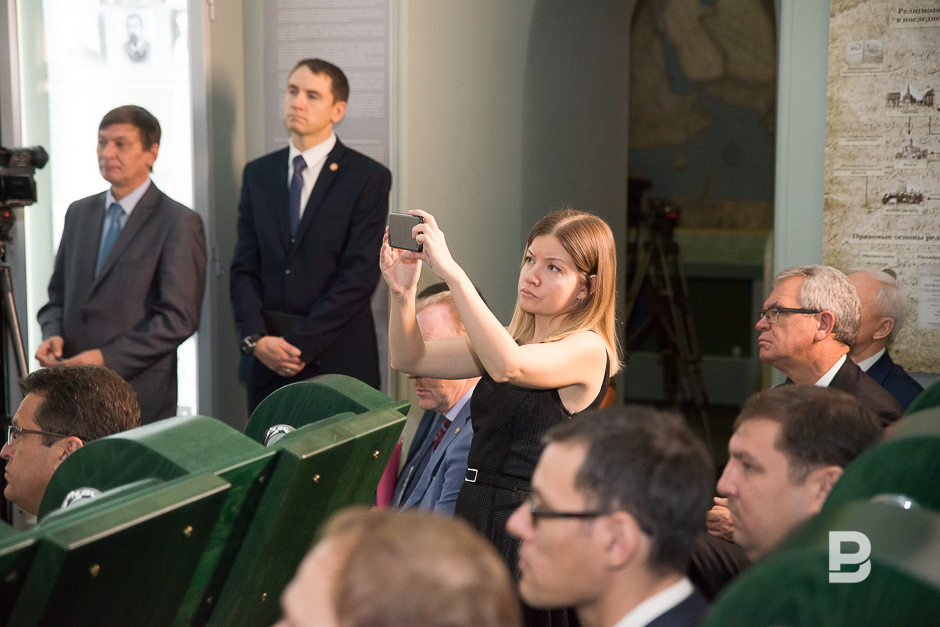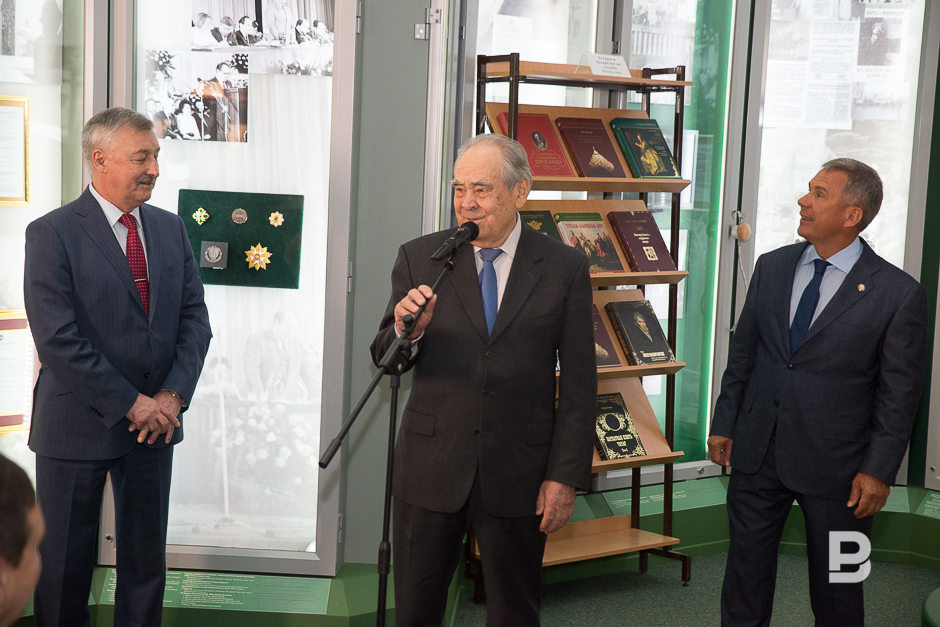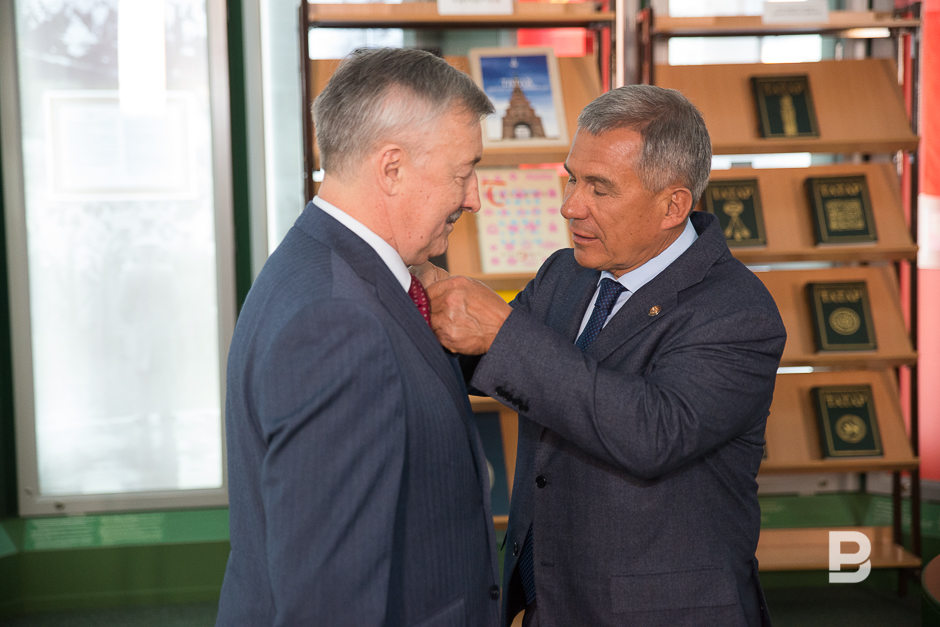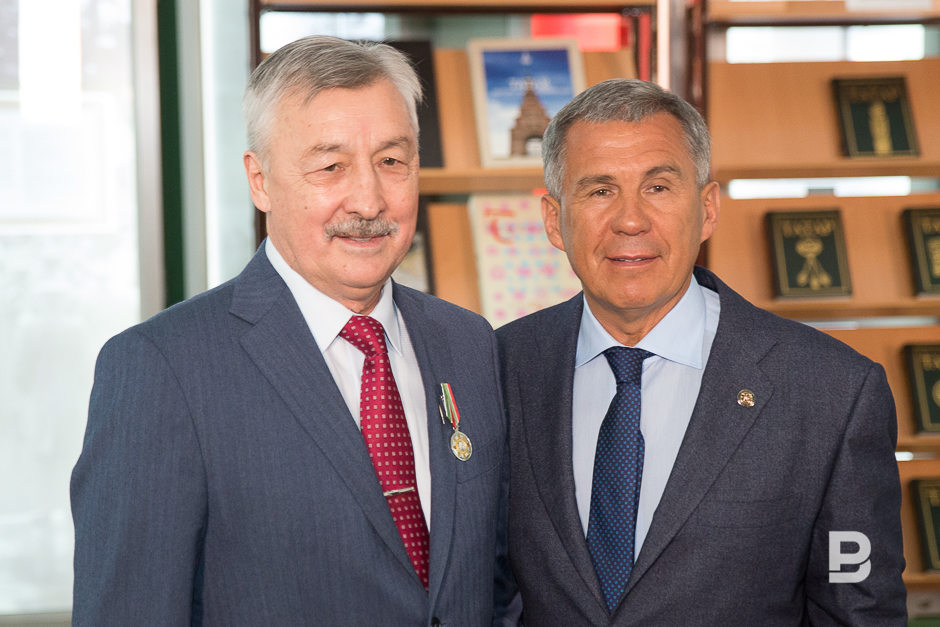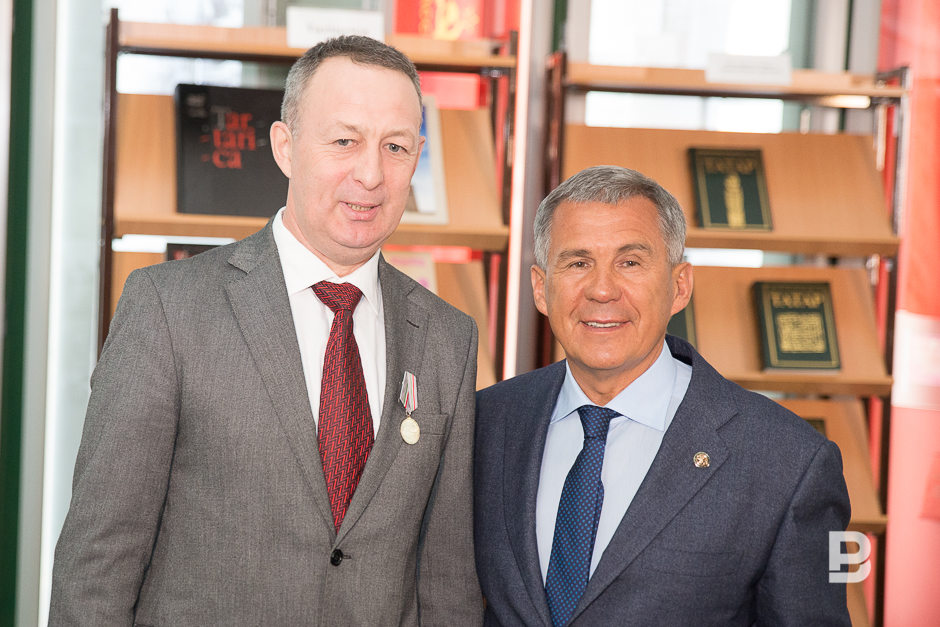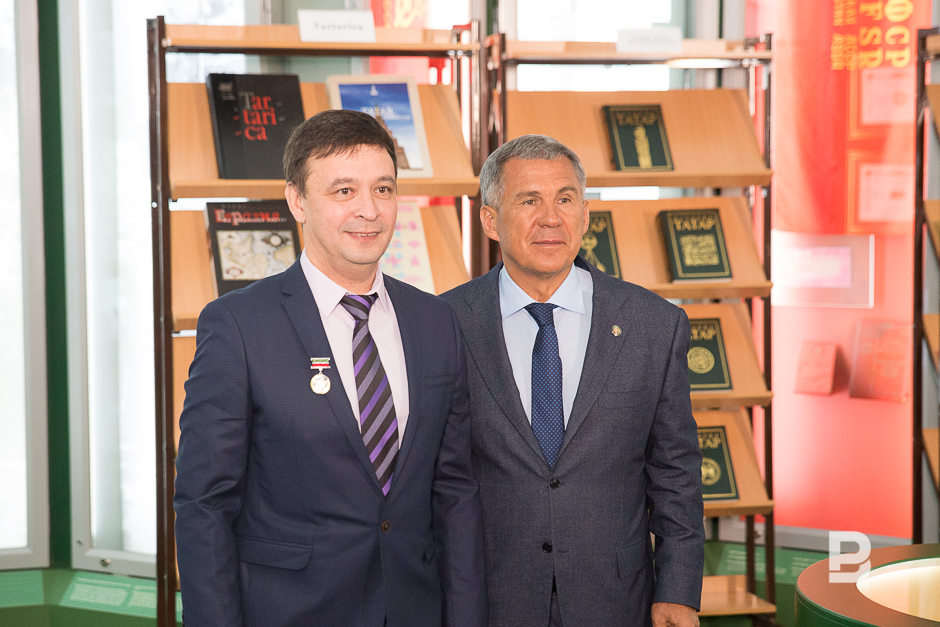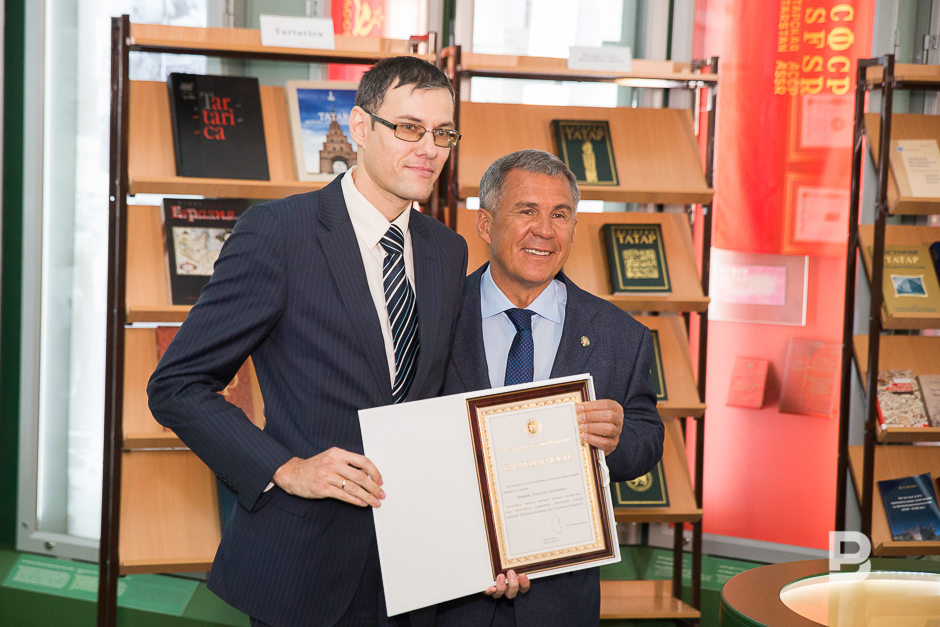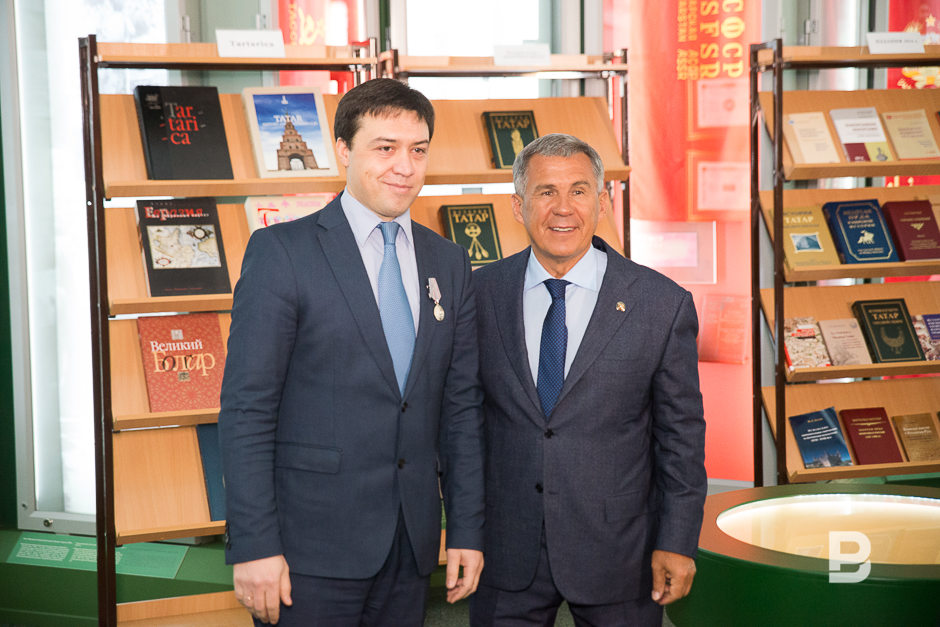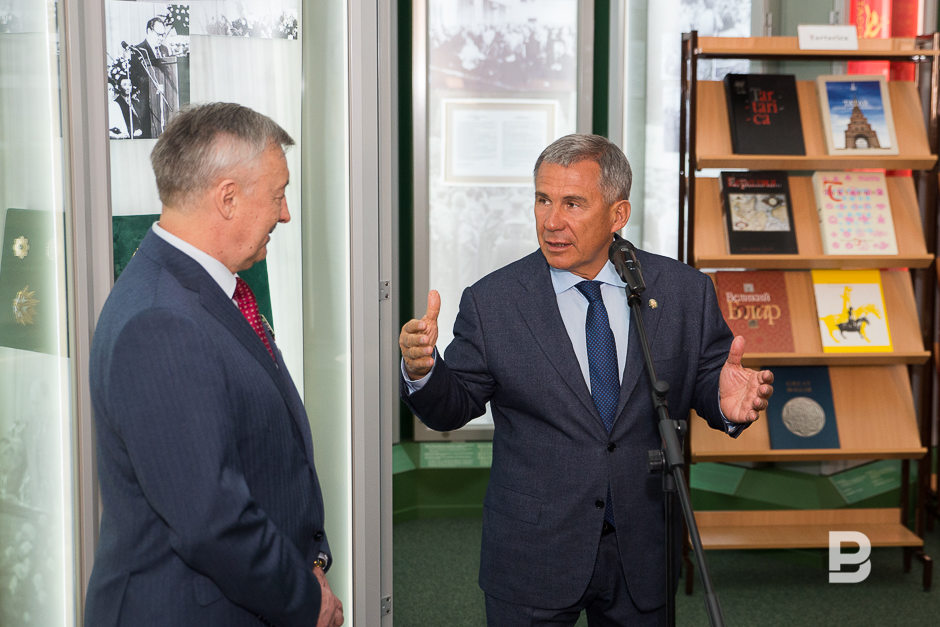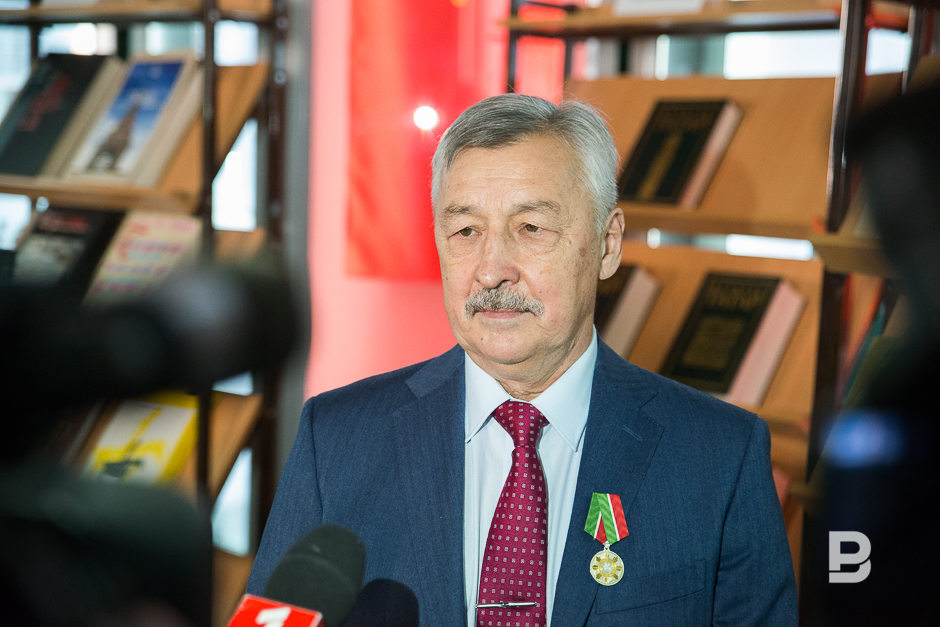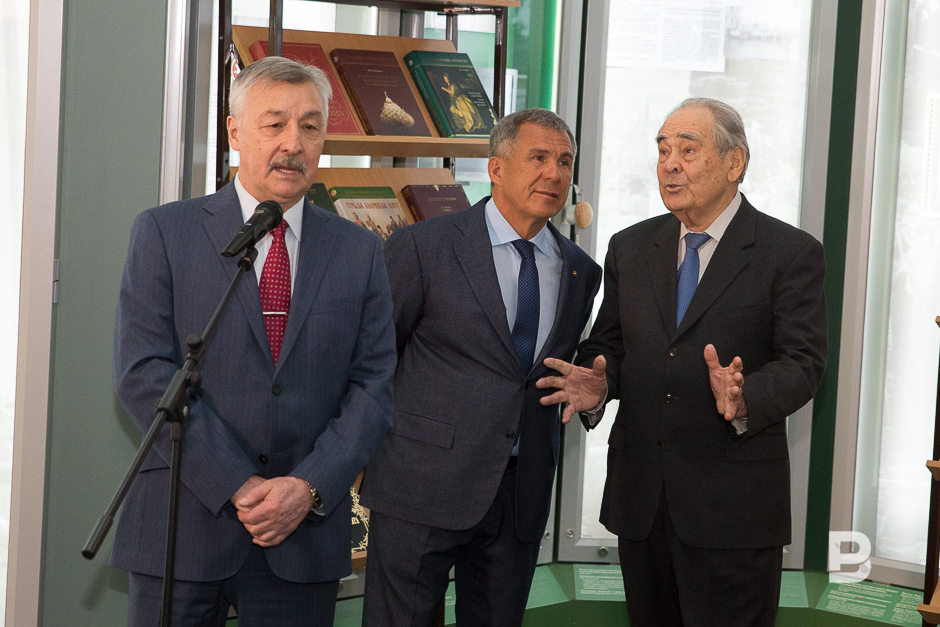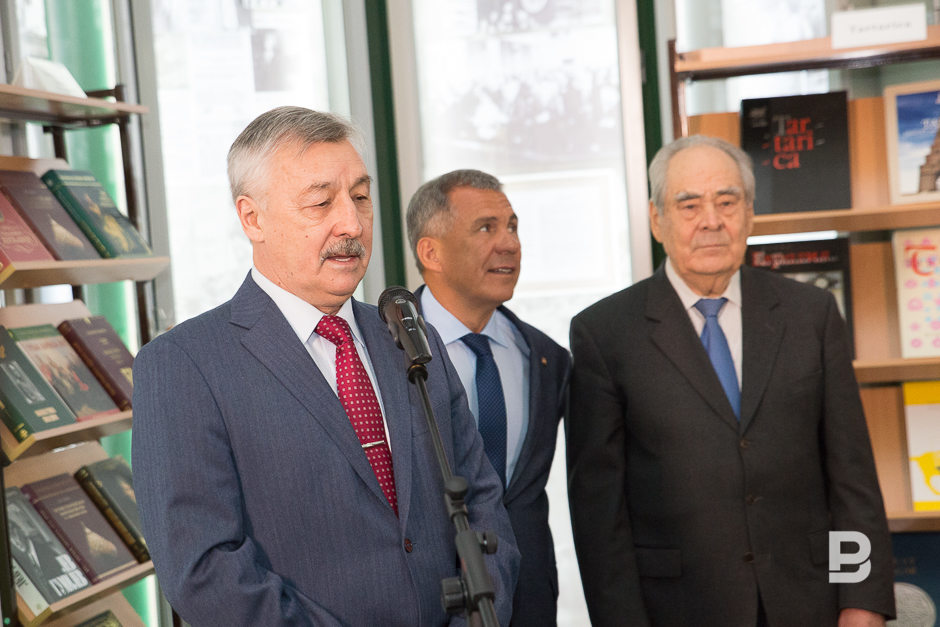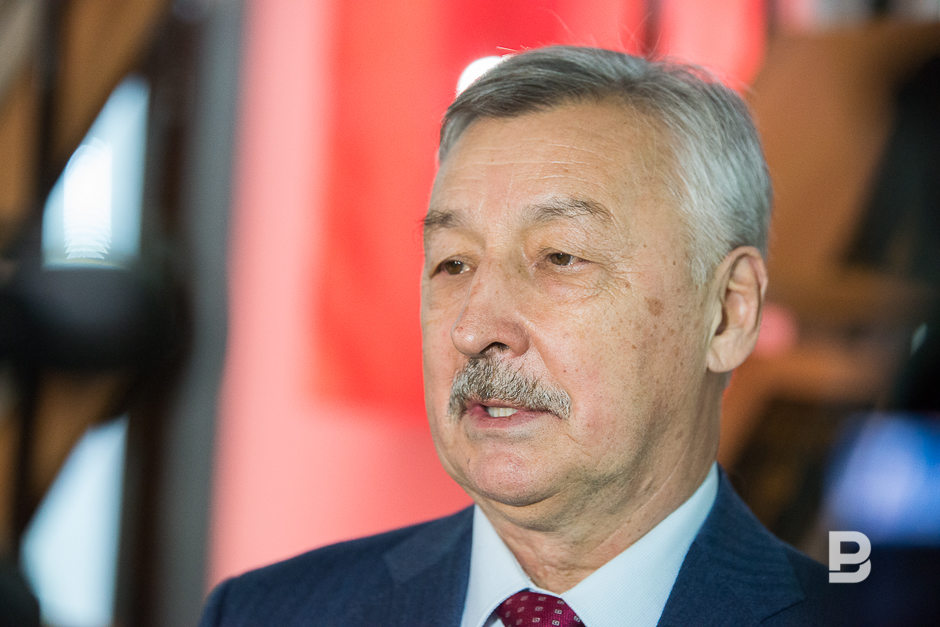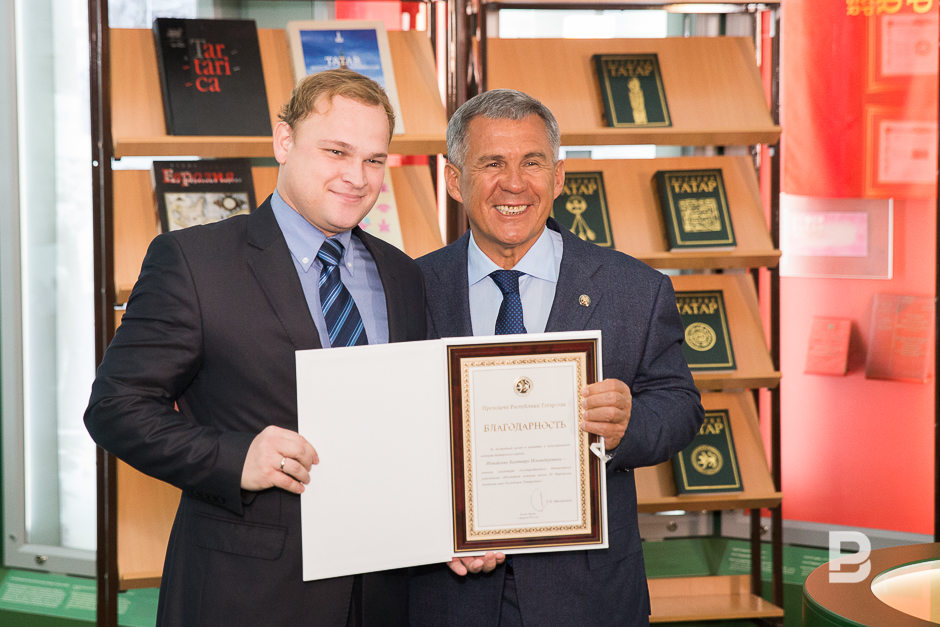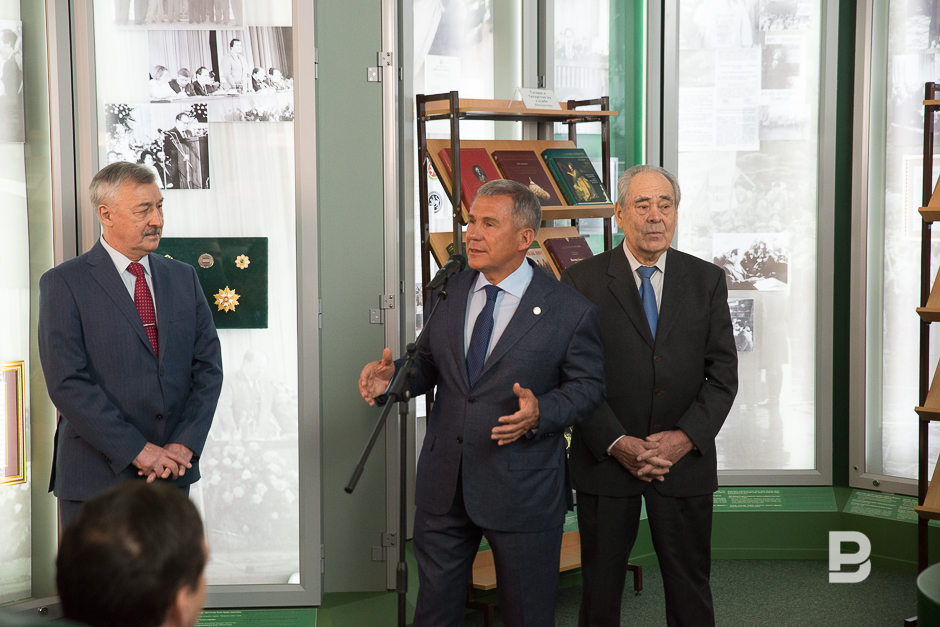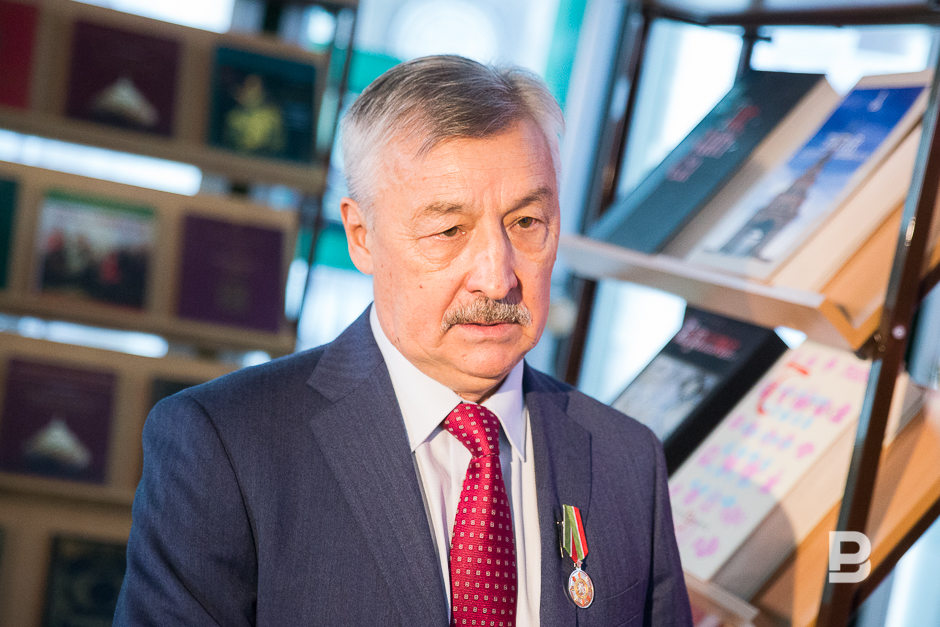'World Congress of the Tatars instructed to write the true history and we fulfilled it'
'Among all sciences, the most important for us is history' — that is the conclusion you could come to when visiting the exhibition '100 books on history of the Tatars and Tatarstan' opened in the building of the Kazan Kreml' House church, now the Museum of statehood of the Tatar people and the Republic of Tatarstan on Thursday. Along with Rustam Minnikhanov, Mintimer Shaimiev and the scholars, the exhibition was attended by a correspondent of Realnoe Vremya.
Important historians
The formal reason for a meeting of historians with the high officials of Tatarstan was the exhibition '100 books on history of the Tatars and Tatarstan', and informal one — 20-year anniversary of the Institute of History named after Sh. Marjani. Director of the Institute and one of the ideologists of the sovereignty of Tatarstan Rafael Khakimov stood not far from located in the center of the hall table with a large brown folio with the words: 'The Constitution of the Republic of Tatarstan', that fact gave the event an additional symbolism.
Recently returned from a voyage around South-East Asia, tanned Rustam Minnikhanov together with Mintimer Shaimiev began looking around the book exhibition.
Historian said, historian did
The president asked something about the books, Rafael Khakimov proudly showed on the folios of 7-volume History of the Tatars, the four-volume translation of the work of the Tatar 'historian number one' of the time of Ataturk (the founder of Turkish Republic) Akdes Nigmat Kurat. The latter, as Khakimov said, is a relative of Ravil Muratov, the former First Deputy Prime Minister of Tatarstan.
The subject of special attention was, of course, just come from a printing office and created in collaboration with the University of Oxford collective monograph The Golden Horde in World History, which, by the way, has already become the envy of the scientists from brotherly Bashkortostan. 'We presented only some of the printed works of our Institute. Out of 1000 books, here we presented about 150 works. Of course, the most important work is the 7-volume History of the Tatars, which we have been preparing for 15 years. The World Congress of the Tatars instructed to write the true history of the Tatars. We have fulfilled this instruction,' said Khakimov at the opening ceremony.
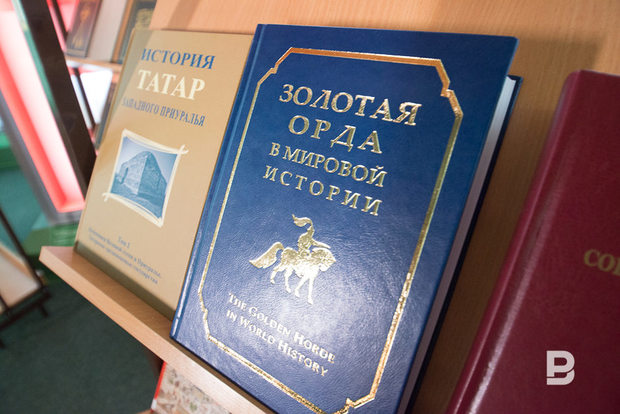
When the authorities recognize you to be effective
As it is known, the Tatarstan authorities, accustomed to see examples of embodiment of theory into practice and to receive not only spiritual dividends, recognized the scientific Institute effective. Although this time the 1000th anniversary of Kazan, which have brought the Republic billions of investments from the federal budget, was not mentioned so often.
'The Institute works effectively. In order to see this, we need to know how scientists in different aspects of humanitarian field worked and work. The Institute have presented the huge 7-volume work on history of Tatarstan. It is a huge success. It is a big job. For many centuries we could not decide and focus if it is possible. And now it is presented before us. In a small room of the Kremlin there are so much of our history concentrated. It unites us, a range of opinions. Please, create, explore, go on in this framework. Thank you so much!' Mintimer Shaimiev congratulated the scientists.
To strengthen theology, the issues of Crimea and the Kryashens
Rustam Minnikhanov began his speech with a strategic quote 'everyone should know the history, if you don't know your history, it is impossible to plan for the future', and then, as a true practitioner, outlined the tactical tasks, which had not been covered yet.
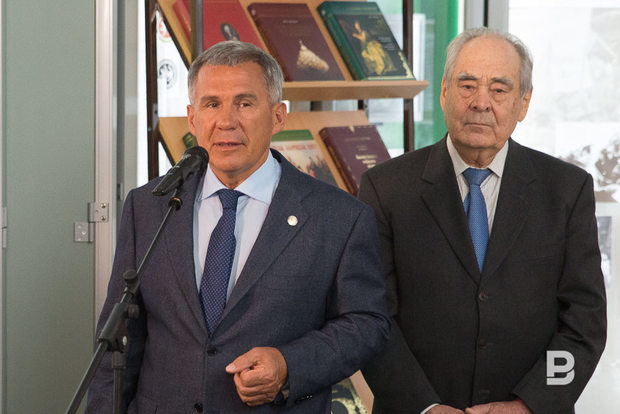
'Today we disclose those individuals, who shaped our history, our culture, our religion, it is very important. Today we are faced with these questions. For example, theologians. It so happened that we were one of the leading theologians in the Islamic world. And so it turned out that a vacuum has formed. Not our fault, but this situation should be resolved. A lot of such issues. Besides, there are different opinions on the Crimean Tatars. How close are our roots with the Turkish Republic? And the history of the Kryashens is very important,' Minnikhanov listed what the order of the state can be. 'We all know and justify the whole history. Your work is very necessary, in demand. We have big plans. Mintimer Sharipovich [Shaimiev — editor's note] supervises these issues. What we need is not a small show room, but it is necessary to make a serious exposition on the history of Tatarstan, the renovation of our Kremlin knowledge and it is necessary to think everything through, so it would be accessible, interesting and became heritage not only for the residents of Tatarstan but for all our guests. So we will continue the work.'
Later, in the interview with Realnoe Vremya, Khakimov told that, as predicted by our newspaper, the Institute will move into a new building at the Kazan Kremlin — the former cancer hospital (historically — a transit prison). 'The second floor is being prepared for us,' he said.
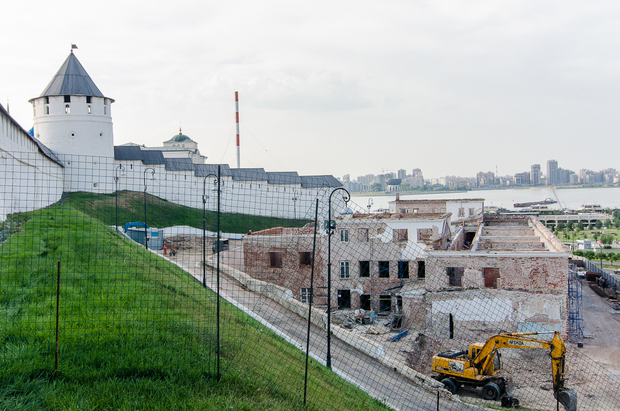
'I agree on the medal. On the medal. And there is no rush'
What is curious, Khakimov said that after the completion of the academic history of the Tatars the next mega-project for the Institute will be the history of the Tatar villages. 'In total in the world there are three and a half thousand Tatar villages. It is a huge number and we are now thinking how to cover this array. In the department, which oversees the project, there are only nine people. We have created a website to communicate with ethnographers. By the way, they are very active at the local level,' said in an interview with Realnoe Vremya Rafael Khakimov. To the question 'isn't it too small scale — to study villages after the great empires of the Middle ages', the director of the Institute said that it is in the villages where many future discoveries are hidden. 'For example, the phenomenon of the Tatar capitalism, which was born in a remote village of Ura. But in classic Western science it is considered that the birth of capitalism is possible in the cities and where there are universities,' said Khakimov.
The celebration on the occasion of the servants of Clio ended with awarding of the medals to the team members of Khakimov. As the staff of the Institute then said later behind the scenes, a decree to award the director with the medal of the order 'For merits before the Republic of Tatarstan' was signed in February. 'They wanted to award me this medal long ago, but I said — only at the anniversary of the institution,' joked Rafael Khakimov.
